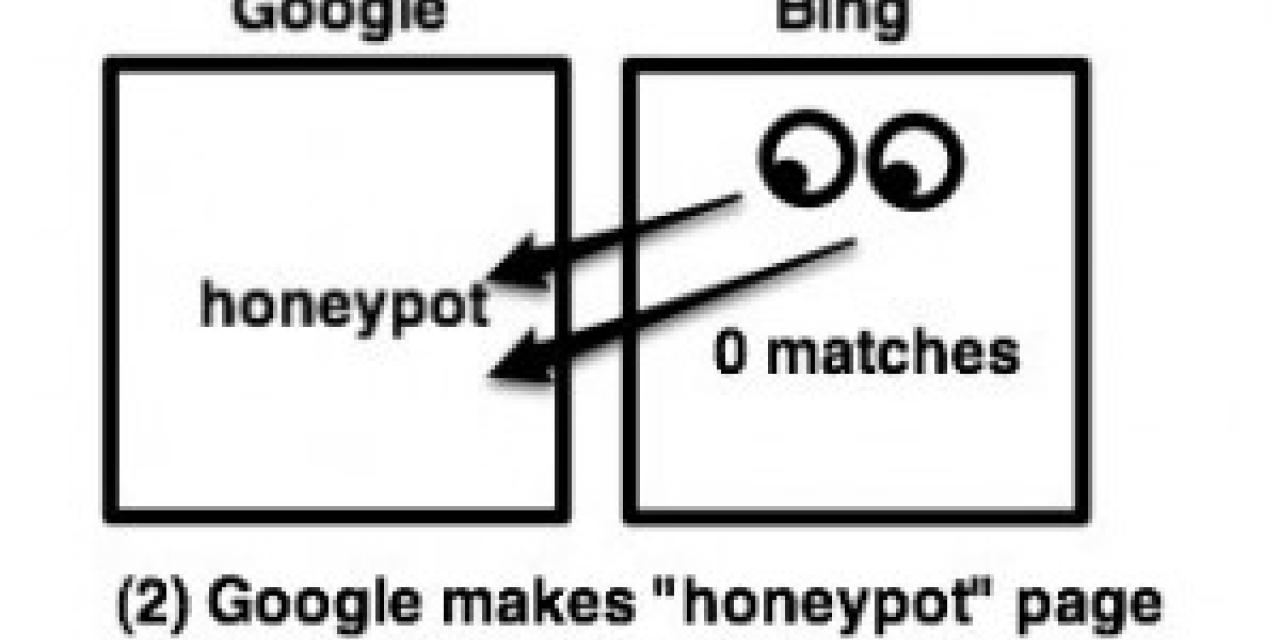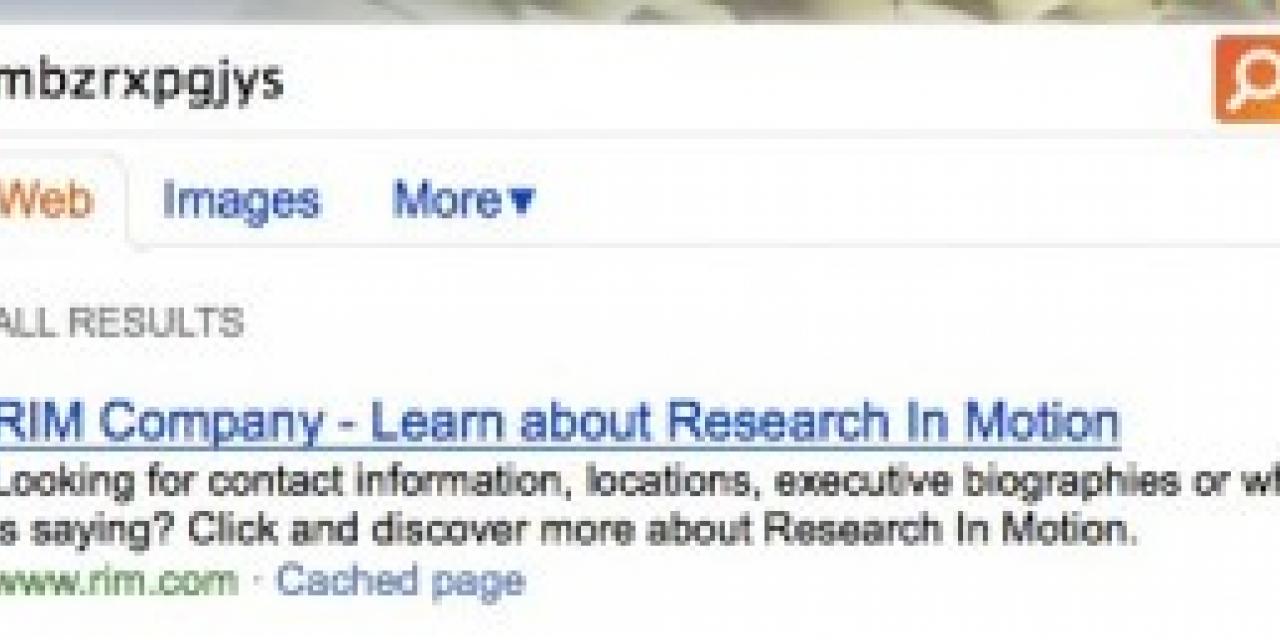


A sting operation conducted by Google has caught Microsoft red-handed while using Google's search results to enhance Bing's.
Google engineers started to get suspicious when they noticed that results returned by Google after doing spelling correction were showing up in Bing's results even though Bing doesn't perform spelling correction on its searches. The engineers did several Bing searches and analyzed the results before reaching a concession that something was afoot, but more evidence need to be gathered.
Looking for the silver bullet, Google engineers started a sting operation that involved - for the first time in the company's history - tampering with search results. Google engineers chose a few non-existent words (such as hiybbprqag and mbzrxpgjys) and manually set the Google search algorithm to return specific honeypot pages as the top results for those search queries. The honeypot pages were specifically chosen to have absolutely no relevance to the words that lead to them. An additional failsafe was added to remove the honeypot pages from the search results for any chosen keyword if its search popularity increases. Everything set in place, 20 Google Engineers were asked to use Microsoft's Internet Explorer at home to Google the chosen words.
The sting operation started on December 17th, and by December 31st some of the honeypot pages started showing up as top Bing results.
Microsoft's senior vice president of online services, Yusuf Mehdi, has responded to Google's accusations with a blog post confirming that Bing do use to Internet Explorer users' clicks and search results in order to improve its search results, but insisting that there is nothing wrong in doing so.
"We do not copy results from any of our competitors. Period. Full stop," Mehdi wrote. "We have some of the best minds in the world at work on search quality and relevance, and for a competitor to accuse any one of these people of such activity is just insulting.
We do look at anonymous click stream data as one of more than a thousand inputs into our ranking algorithm. We learn from our customers as they traverse the web, a common practice in helping to improve a wide array of online services. We have been clear about this for a couple of years (see Directions on Microsoft report, June 15, 2009).
Google engaged in a "honeypot" attack to trick Bing. In simple terms, Google's "experiment" was rigged to manipulate Bing search results through a type of attack also known as "click fraud." That's right, the same type of attack employed by spammers on the web to trick consumers and produce bogus search results. What does all this cloak and dagger click fraud prove? Nothing anyone in the industry doesn't already know. As we have said before and again in this post, we use click stream optionally provided by consumers in an anonymous fashion as one of 1,000 signals to try and determine whether a site might make sense to be in our index."








